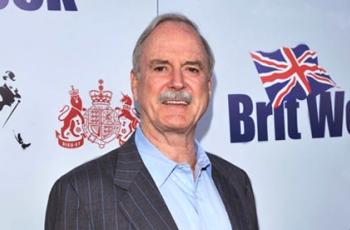| Why John Cleese is wrong on Englishness |
 |
 |
| Thursday, 28 April 2011 10:16 |
|
Should we be more concerned with contentious statements made by famous people, or their use by those who wish to use these incidents to peddle their own gripes with immigration and diversity?
Originally published by OBV
‘Capital cities are more cosmopolitan shock!’
That’s one way to digest the recent comments from John Cleese reported in The Telegraph on Monday. He is reported to have said that “London is no longer an English city which is why I love Bath…I love being down in Bath because it feels like the England that I grew up in”.
His comments brought criticism from OBV Director, Simon Woolley, who argued that as well as being disingenuous, the Monty Python star was hypocritical given that he once resided in California (one of the most diverse states in the US, with over a third of its population born outside America).
My difficulties with Cleese’s statements are two-fold. The first is some of the content of what was said, but I am more concerned about how people have used this incident to push their belief that Britishness or British culture is somehow an endangered species.
First of all, for the comedy legend to suggest that Bath “feels like the England that I grew up in” is not a huge surprise given that he grew up in nearby Weston-Super-Mare and Bristol. I love being in the North-West for similar reasons. That is if I interpret his comments through a lens that is about familiarity and region.
However, his comment that London is “no longer an English city” makes it difficult to believe he was using geography as the basis for his argument. I live in London and upon hearing such comments you would think I would struggle to cope given that I am not fluent in any other languages.
With such remarks I believe that further explanation is needed. What is no longer English about London? How has London lost its Englishness? The onus should be on Cleese to clarify. I understand that a handful of London boroughs have ‘White British’ populations that are less than 50%. I also know that in London it is easy to access food from almost every nation on earth.
It also about to be the venue of a very English Royal Wedding, the home to hundreds of attractions celebrating English heritage, and is home to over 57% of people who define themselves as ‘White British’. So what is no longer English about it?
My answer is the myths of the ‘diversity doom-mongers’. There was evidence of this in the report in The Telegraph about Cleese’s comments. Almost every actual or perceived decline in British life is laid at the door of immigration and diversity. For example, the journalist in question – Ed West – suggested that they have “destroyed” secularism, and a public willingness to pool resources to pay for public services to name but two.
He even questions whether Monty Python’s, Life of Brian could even be made today. This is despite the rise in the popular atheism of writers such as Richard Dawkin, and the fact that the musical parody Jerry Springer: The Opera (seen as highly offensive by some Christians) ran from 2003-2006 in the UK.
The facts don’t seem to matter with these sorts of articles. West even argues that “British history has been almost erased from the collective memory, and this was in part a response to immigration”. It may be my imagination but perhaps the Remembrance Day celebrations, the myriad documentaries about the Second World War, and the celebrity status of historians such as David Starkey are testament to the opposite?
Perhaps the fact that the Tudors, the Reformation, the Industrial Revolution, the Norman Conquest, and the World Wars are some of the most regular content in history lessons in UK schools suggests that maybe Ed West and his ilk are either doom-mongering or more bizarrely, do not consider any of the above British history.
Objecting to statements like Cleese’s or West often gives rise to accusations of political correctness and trying to restrict free speech. It portrays commentators such as me or Simon Woolley as killjoys or ‘thought police’. These are just tactics designed to deflect away from the facts of the discussion at hand. Like the phrases ‘enforced diversity’, ‘state multiculturalism’, or ‘official anti-racism’ they mean very little outside of publications like The Telegraph or rightwing blogs.
Rather than retaliate with facts to the contrary the above tactics are the usual response, which is pretty ironic for people who also keep calling for ‘open’ and ‘grown-up’ debate. |
| Last Updated on Thursday, 28 April 2011 10:23 |



 By David Dalgleish
By David Dalgleish
Bath is indeed a beautiful place. I visited for a few days a short while ago. But as well as the beauty, I also saw:
Horrible shopping precincts,
Roman Baths turned into expensive themeparks,
Factories boarded up,
Exclusive areas of opulence and run down council estates,
A supermarket in the town centre which means there are very few specialist food shops.
Is this the England/Britain that John Cleese wants to see?